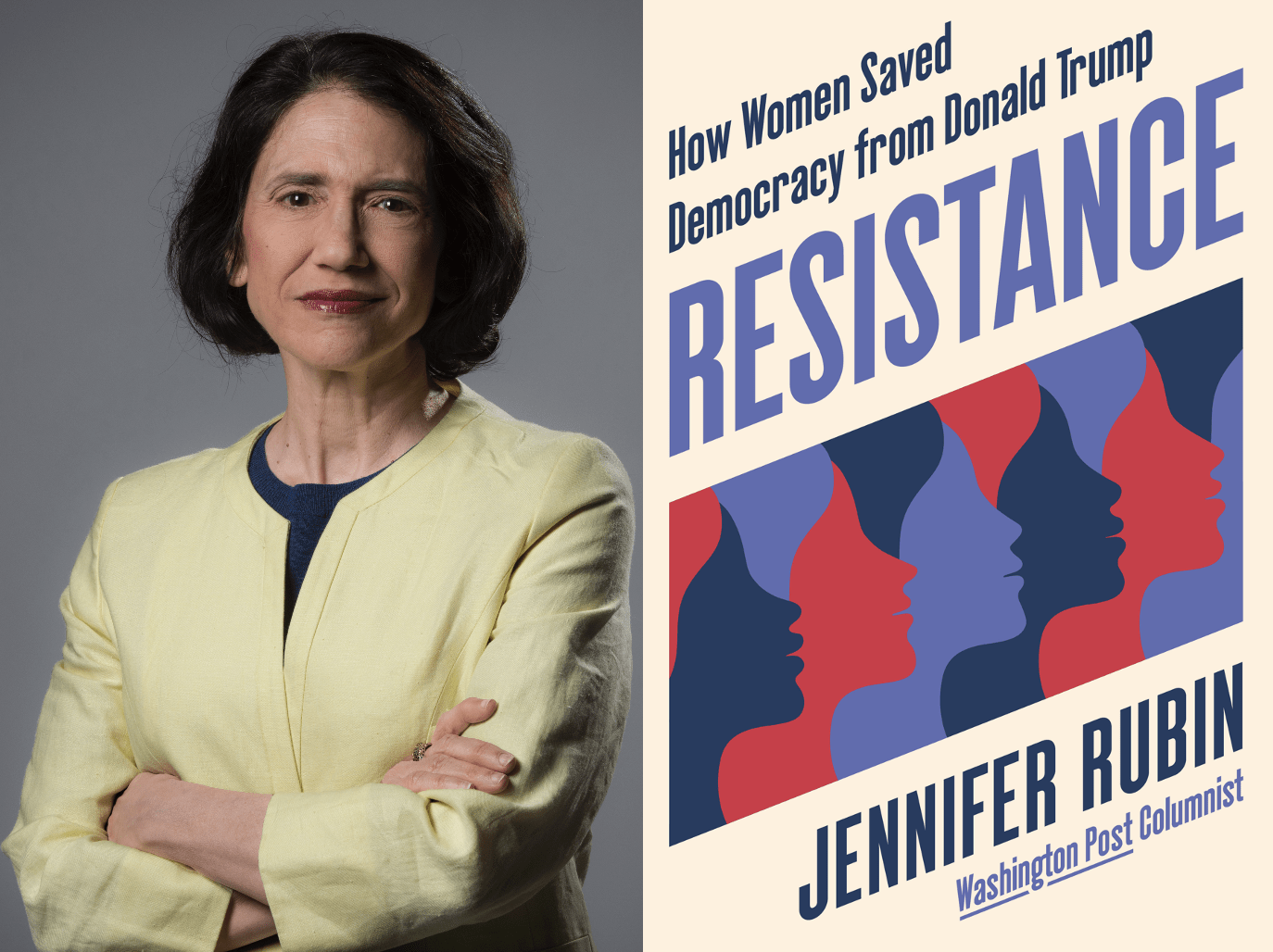Students in Professor Cary Coglianese’s Regulatory Law and Policy and Advanced Regulatory Law and Policy courses joined together last month to gain insights about professional writing from Jennifer Rubin, the highly influential columnist at The Washington Post, who visited Penn Law to speak in Coglianese’s classes.
Rubin, who spent twenty years as a practicing lawyer before turning to journalism, also discussed the process of writing her newly published book, Resistance: How Women Saved Democracy from Donald Trump.
“A lot of what I learned in law school, and a lot of the skills I used as a practicing lawyer, I still use now,” Rubin noted in her remarks. “How you construct an argument, and how you need to understand the other person’s argument in order to rebut it—these skill sets are very useful for journalists,” she said.
During her visit to Penn Law, Rubin shared advice on how to use writing to connect with a wide audience. She also discussed interview strategies, the importance of listening skills, and techniques for crafting effective narratives.
“My regulatory courses are writing-intensive,” Coglianese said. “I try to help students prepare to communicate with non-specialist audiences about complex legal and policy issues—a task not unlike what accomplished journalists like Rubin do so well on a daily basis.”
In her book, Resistance: How Women Saved Democracy from Donald Trump, Rubin chronicles the upswell in political activism in response to the election of Donald Trump, focusing on the role women played in the political movement ultimately instrumental to Trump’s defeat in the 2020 election.
Some of women featured in Rubin’s book became so activated by Trump’s election that they resolved to run for political office themselves.
During her visit to Penn Law, for example, Rubin spoke about as Abigail Spanberger, the former CIA officer who, as a Democratic candidate, unseated Republican David Brat to become the U.S. Representative for Virginia’s 7th congressional district.
Rubin also discussed the path to political leadership taken by Katie Porter, a former law professor who, in 2019, became the first Democrat ever to represent California’s 45th congressional district.
Many of the women profiled in Rubin’s new book had never previously been politically active, but within weeks of Trump’s election in 2016 became grassroots organizers, planned and participated in protest marches, and helped mobilize thousands of new voters.
“So much of what happens in Washington, D.C., and across the federal agencies, is shaped by presidential elections,” noted Coglianese, a specialist in administrative law.
Rubin’s visit was part of a regular feature built into Coglianese’s course, through which he regularly invites leading scholars and practitioners of regulation to talk about their work. Each year, he also brings in a journalist to talk with students.
Previous speakers have included Derrick Z. Jackson, former columnist for The Boston Globe, Catherine Rampell, an opinion columnist at The Washington Post, and Lisa Friedman, a reporter on the climate desk at The New York Times.
“Lawyers, like journalists, need to boil down complex legal and policy issues and write about them precisely and clearly,” Coglianese noted. “I am grateful when we can bring in exceptional professional writers to share their wisdom with our students,” he said.
Coglianese is director of the Penn Program on Regulation, which is dedicated to teaching, research, and outreach about all aspects of regulation and the regulatory process. The Program offers numerous other opportunities for Penn Law students to hone professional skills as well as learn about regulatory policymaking.



